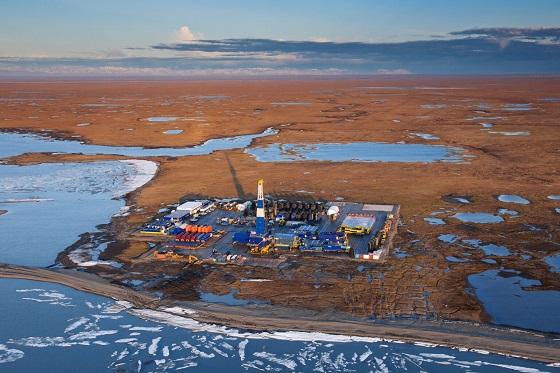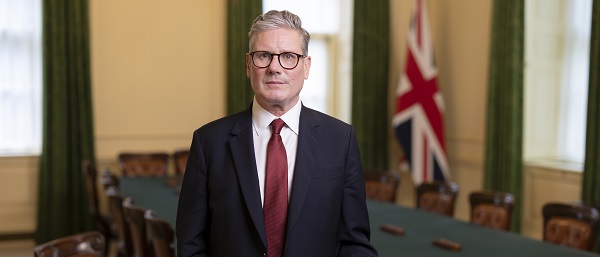Uncategorized
Premier Danielle Smith deflects shot from Liberal government, levels a blow for Alberta

Standing up for Alberta: Statement from Premier Smith
Premier Danielle Smith issued the following statement on further attacks by the federal government on Alberta’s energy sector:
“Federal Minister of Environment and Climate Change Steven Guilbeault has once again shown his utter contempt for Alberta, our economy and our energy workers.
“While advising the Chinese Communist Party about its environmental policies, Minister Guilbeault stated that, due to an Alberta oil and gas company’s decision to focus on oil and gas production, he has increased his resolve to introduce an emissions cap that will effectively force energy companies to cap their oil and gas production.
“Minister Guilbeault’s comments are a continuation of his provocative verbal attacks on Alberta’s energy sector, the most environmentally responsible and ethical energy-producing jurisdiction in the world. His involvement in the China Council for International Cooperation on Environment and Development has him turning a blind eye to China’s environmental record while they add the equivalent of two new coal emissions plants each week. Conversely, Albertans have cut emissions more than any other province this past decade, spending billions of dollars transitioning almost all electricity generation from coal to natural gas.
“Albertans are proud of our environmental leadership and do not deserve the irresponsible, destabilizing, investment-repelling and ill-informed comments of a federal cabinet minister intent on destroying one of Alberta’s and Canada’s most critical economic sectors. Phasing out Alberta’s oil and gas sector will devastate the Canadian and Alberta economies, significantly reduce budgets for health care and other social programs, put tens of thousands of people out of work and make little to no impact on reducing global emissions. Furthermore, Minister Guilbeault’s unrealistic 2035 net-zero power grid plan will make electricity unreliable and unaffordable for millions of Albertans.
“Under no scenario will the Government of Alberta permit the implementation of the proposed federal electricity regulations or contemplated oil and gas emissions cap. Ottawa has no constitutional authority to regulate in these areas of exclusive provincial jurisdiction. We would strongly suggest the federal government refrain from testing our government’s or Albertans’ resolve in this regard.
“As stated repeatedly, we stand ready to commence the federal-provincial working group in good faith to align Ottawa’s and Alberta’s efforts towards achieving a carbon-neutral economy by 2050. However, this must be done in a collaborative and respectful fashion without Minister Guilbeault’s continued threats to the economic well-being of Albertans and Canadians.”
Uncategorized
Cost of bureaucracy balloons 80 per cent in 10 years: Public Accounts

The cost of the bureaucracy increased by $6 billion last year, according to newly released numbers in Public Accounts disclosures. The Canadian Taxpayers Federation is calling on Prime Minister Mark Carney to immediately shrink the bureaucracy.
“The Public Accounts show the cost of the federal bureaucracy is out of control,” said Franco Terrazzano, CTF Federal Director. “Tinkering around the edges won’t cut it, Carney needs to take urgent action to shrink the bloated federal bureaucracy.”
The federal bureaucracy cost taxpayers $71.4 billion in 2024-25, according to the Public Accounts. The cost of the federal bureaucracy increased by $6 billion, or more than nine per cent, over the last year.
The federal bureaucracy cost taxpayers $39.6 billion in 2015-16, according to the Public Accounts. That means the cost of the federal bureaucracy increased 80 per cent over the last 10 years. The government added 99,000 extra bureaucrats between 2015-16 and 2024-25.
Half of Canadians say federal services have gotten worse since 2016, despite the massive increase in the federal bureaucracy, according to a Leger poll.
Not only has the size of the bureaucracy increased, the cost of consultants, contractors and outsourcing has increased as well. The government spent $23.1 billion on “professional and special services” last year, according to the Public Accounts. That’s an 11 per cent increase over the previous year. The government’s spending on professional and special services more than doubled since 2015-16.
“Taxpayers should not be paying way more for in-house government bureaucrats and way more for outside help,” Terrazzano said. “Mere promises to find minor savings in the federal bureaucracy won’t fix Canada’s finances.
“Taxpayers need Carney to take urgent action and significantly cut the number of bureaucrats now.”
Table: Cost of bureaucracy and professional and special services, Public Accounts
| Year | Bureaucracy | Professional and special services |
|
$71,369,677,000 |
$23,145,218,000 |
|
|
$65,326,643,000 |
$20,771,477,000 |
|
|
$56,467,851,000 |
$18,591,373,000 |
|
|
$60,676,243,000 |
$17,511,078,000 |
|
|
$52,984,272,000 |
$14,720,455,000 |
|
|
$46,349,166,000 |
$13,334,341,000 |
|
|
$46,131,628,000 |
$12,940,395,000 |
|
|
$45,262,821,000 |
$12,950,619,000 |
|
|
$38,909,594,000 |
$11,910,257,000 |
|
|
$39,616,656,000 |
$11,082,974,000 |
Uncategorized
New report warns WHO health rules erode Canada’s democracy and Charter rights

The Justice Centre for Constitutional Freedoms has released a new report titled Canada’s Surrender of Sovereignty: New WHO health regulations undermine Canadian democracy and Charter freedoms. Authored by Nigel Hannaford, a veteran journalist and researcher, the report warns that Canada’s acceptance of the World Health Organization’s (WHO) revised International Health Regulations (IHR) represents a serious erosion of national independence and democratic accountability.
The IHR amendments, which took effect on September 19, 2025, authorize the WHO Director-General to declare global “health emergencies” that could require Canada to follow directives from bureaucrats in Geneva, bypassing the House of Commons and the will of Canadian voters.
The WHO regards these regulations as “binding,” despite having no ability or legal authority to impose such regulations. Even so, Canada is opting to accept the regulations as binding.
By accepting the WHO’s revised IHR, the report explains, Canada has relinquished its own control over future health crises and instead has agreed to let the WHO determine when a “pandemic emergency” exists and what Canada must do to respond to it, after which Canada must report back to the WHO.
In fact, under these International Health Regulations, the WHO could demand countries like Canada impose stringent freedom-violating health policies, such as lockdowns, vaccine mandates, or travel restrictions without debate, evidence review, or public accountability, the report explains.
Once the WHO declares a “Pandemic Emergency,” member states are obligated to implement such emergency measures “without delay” for a minimum of three months.
Importantly, following these WHO directives would undermine government accountability as politicians may hide behind international “commitments” to justify their actions as “simply following international rules,” the report warns.
Canada should instead withdraw from the revised IHR, following the example of countries like Germany, Austria, Italy, Czech Republic, and the United States. The report recommends continued international cooperation without surrendering control over domestic health policies.
Constitutional lawyer Allison Pejovic said, “[b]y treating WHO edicts as binding, the federal government has effectively placed Canadian sovereignty on loan to an unelected international body.”
“Such directives, if enforced, would likely violate Canadians’ Charter rights and freedoms,” she added.
Mr. Hannaford agreed, saying, “Canada’s health policies must be made in Canada. No free and democratic nation should outsource its emergency powers to unelected bureaucrats in Geneva.”
The Justice Centre urges Canadians to contact their Members of Parliament and demand they support withdrawing from the revised IHR to restore Canadian sovereignty and reject blind compliance with WHO directives.
-

 illegal immigration2 days ago
illegal immigration2 days agoWhile Trump has southern border secure, hundreds of thousands of illegal immigrants still flooding in from Canada
-

 Censorship Industrial Complex2 days ago
Censorship Industrial Complex2 days agoCanadian bishops condemn Liberal ‘hate speech’ proposal that could criminalize quoting Scripture
-

 Automotive5 hours ago
Automotive5 hours agoTrump Deals Biden’s EV Dreams A Death Blow
-

 Energy1 day ago
Energy1 day agoSenate votes to reopen Alaska Coastal Plain to energy leasing
-

 Censorship Industrial Complex2 days ago
Censorship Industrial Complex2 days agoForeign Leaders Caught Orchestrating Campaign To Censor American Right-Wing Media Companies
-

 Focal Points13 hours ago
Focal Points13 hours agoPharma Bombshell: President Trump Orders Complete Childhood Vaccine Schedule Review
-

 Opinion12 hours ago
Opinion12 hours agoCountry music star Paul Brandt asks Parliament to toughen laws against child porn
-

 Alberta13 hours ago
Alberta13 hours agoPremier Smith: Canadians support agreement between Alberta and Ottawa and the major economic opportunities it could unlock for the benefit of all





